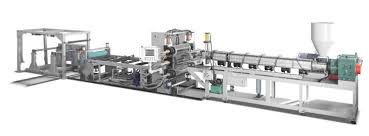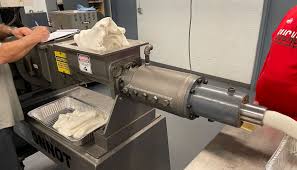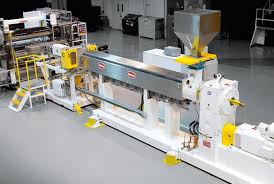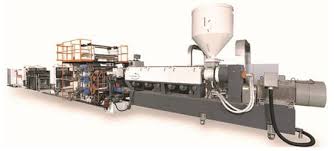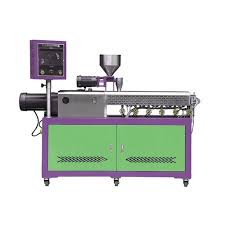In plastic extrusion, torsion (or torque) refers to the twisting force applied to the extruder screw by the drive motor and gearbox. This torque is a critical factor in determining how efficiently raw plastic material is conveyed, melted, and pushed through the die to form the desired profile.
The level of torsion required depends on several factors:
Material type – Rigid polymers like HDPE or filled compounds require higher torque.
Screw design – Deep flights, compression ratios, and mixing elements affect resistance.
Processing conditions – Higher viscosity at lower temperatures increases torque demand.
Output rate – More throughput generally means more torque.
Proper torque calculation is essential for both energy efficiency and equipment longevity. Excessive torsion can cause wear on the gearbox, deform the screw, or even damage the barrel. On the other hand, insufficient torque can lead to poor mixing, incomplete melting, or inconsistent product quality.
Modern plastic extrusion machines use torque sensors and monitoring systems to ensure optimal performance. By tracking torsion in real time, operators can adjust screw speed, temperature zones, and material feed rates to maintain stable production.
For manufacturers, understanding torsion in plastic extrusion means:
Better process control
Reduced maintenance costs
Consistent product quality
Improved energy efficiency
Whether in pipe manufacturing, film production, or profile extrusion, managing torsion is key to achieving smooth, reliable, and cost-effective operations.
Keywords: plastic extrusion torsion, extrusion screw torque, extruder machine torque, polymer processing torque, plastic extrusion process control


